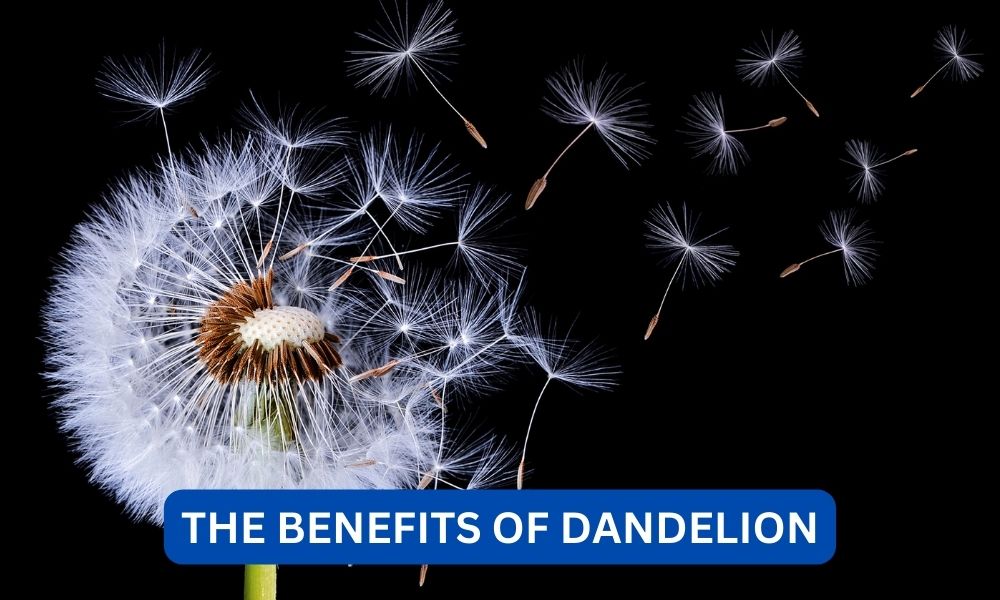When you think of dandelions, you may picture a pesky weed that invades your lawn and garden. But did you know that this common plant actually has a wide range of health benefits? Dandelions have been used for centuries in traditional medicine and are now gaining recognition in the modern world for their numerous medicinal properties. In this article, we will explore the benefits of dandelion and how it can improve your overall health and well-being.
Contents
What is Dandelion?
Dandelion, also known as Taraxacum officinale, is a flowering plant that belongs to the Asteraceae family. It is native to Europe, Asia, and North America and can now be found all over the world. The plant has a long, thick taproot and produces bright yellow flowers that turn into fluffy white seed heads. These seed heads are often referred to as “blowballs” or “clocks” and are a common sight in fields and lawns.
While dandelions are often considered a nuisance, they have been used for centuries in traditional medicine to treat a variety of ailments. The entire plant, including the leaves, flowers, and roots, is edible and has a bitter taste. It is rich in vitamins and minerals, making it a popular ingredient in salads, teas, and other dishes.
Read:What are the benefits of sleeping naked?The Nutritional Value of Dandelion
Dandelions are packed with essential nutrients that are beneficial for our health. According to the United States Department of Agriculture (USDA), one cup of raw dandelion greens (55 grams) contains:
- 25 calories
- 1.5 grams of protein
- 0.4 grams of fat
- 5.1 grams of carbohydrates
- 1.9 grams of fiber
- 1.1 grams of sugar
- 112% of the recommended daily intake (RDI) of vitamin A
- 32% of the RDI of vitamin C
- 10% of the RDI of calcium
- 9% of the RDI of iron
- 5% of the RDI of magnesium
Dandelion greens are also a good source of potassium, vitamin E, and vitamin K. They are low in calories and carbohydrates, making them a great addition to a healthy diet.
Health Benefits of Dandelion
Now that we know the nutritional value of dandelion, let’s explore the various health benefits it offers.
1. Rich in Antioxidants
Dandelion is rich in antioxidants, which are compounds that help protect our cells from damage caused by free radicals. Free radicals are unstable molecules that can cause oxidative stress, leading to chronic diseases such as cancer, heart disease, and diabetes. Antioxidants neutralize these free radicals, reducing the risk of these diseases.
Read:What are onions health benefits?A study published in the Journal of Food Science found that dandelion greens have a higher antioxidant activity than spinach and broccoli. The researchers also noted that dandelion greens contain a unique type of antioxidant called luteolin, which has been linked to anti-inflammatory and anti-cancer effects.
2. Supports Liver Health
The liver is responsible for filtering toxins from our blood, producing bile, and storing essential vitamins and minerals. Dandelion has been traditionally used to support liver health and improve its function. Studies have shown that dandelion root extract can help protect the liver from damage caused by alcohol and other toxins.
In a study published in the Journal of Ethnopharmacology, researchers found that dandelion root extract helped protect liver cells from damage caused by acetaminophen, a common pain reliever. Another study published in the Journal of Medicinal Food found that dandelion root extract improved liver function in mice with non-alcoholic fatty liver disease.
3. May Lower Blood Pressure
High blood pressure, also known as hypertension, is a major risk factor for heart disease and stroke. Dandelion has been shown to have a diuretic effect, meaning it can increase the production of urine and help lower blood pressure.
Read:What are the benefits of black pepper?A study published in the Journal of Alternative and Complementary Medicine found that dandelion extract had a significant diuretic effect in healthy volunteers. Another study published in the Journal of Herbal Pharmacotherapy found that dandelion extract helped lower blood pressure in rats with hypertension.
4. May Improve Digestive Health
Dandelion has been traditionally used to improve digestive health and treat digestive disorders such as constipation, diarrhea, and bloating. The bitter compounds in dandelion stimulate the production of digestive juices, which can aid in digestion and relieve symptoms of digestive issues.
A study published in the Journal of Alternative and Complementary Medicine found that dandelion extract helped improve symptoms of dyspepsia, a condition characterized by discomfort or pain in the upper abdomen. Another study published in the Journal of Ethnopharmacology found that dandelion extract helped increase the frequency of bowel movements in constipated rats.
5. May Help Fight Cancer
Dandelion has been studied for its potential anti-cancer properties. Some studies have shown that dandelion extract may help slow the growth of cancer cells and induce cell death in various types of cancer, including leukemia, melanoma, and pancreatic cancer.
A study published in the International Journal of Oncology found that dandelion root extract had anti-cancer effects on human pancreatic cancer cells. Another study published in the Journal of Ethnopharmacology found that dandelion extract inhibited the growth of human melanoma cells.
How to Incorporate Dandelion into Your Diet
Now that we know the numerous health benefits of dandelion, you may be wondering how to incorporate it into your diet. Here are some easy ways to add dandelion to your meals:
- Add dandelion greens to your salads or smoothies.
- Use dandelion root to make tea.
- Use dandelion leaves in place of spinach or kale in recipes.
- Roast dandelion roots and use them as a coffee substitute.
- Use dandelion flowers to make jelly or syrup.
Precautions and Side Effects
While dandelion is generally safe for consumption, there are some precautions and side effects to be aware of. Dandelion may interact with certain medications, such as blood thinners and diuretics. It may also cause allergic reactions in some individuals.
If you are pregnant or breastfeeding, it is best to consult with your healthcare provider before consuming dandelion. It is also important to note that dandelion supplements are not regulated by the Food and Drug Administration (FDA) and may contain varying amounts of active ingredients.
Conclusion:
Dandelion may be considered a weed by some, but it is a powerful plant with numerous health benefits. From its high nutritional value to its potential anti-cancer properties, dandelion has a lot to offer. So the next time you see a dandelion in your lawn, don’t be so quick to pull it out. Instead, consider incorporating it into your diet and reap the many benefits it has to offer.









